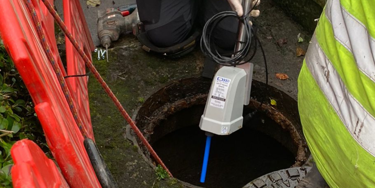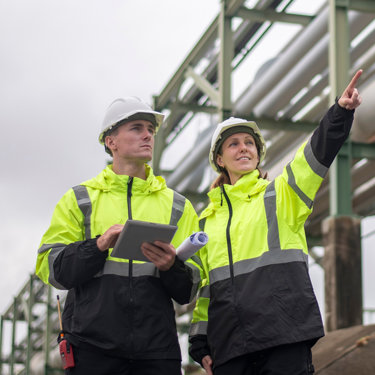The future of event duration monitoring
Published: 8 August 2024
Event duration monitoring (EDM) is a vital component in managing wastewater systems. It involves tracking the duration and frequency of overflow events when the network's capacity is exceeded. As the landscape of EDM evolves, water companies face new challenges and opportunities.
By implementing the latest advancements in event duration monitoring technology, we can better predict and prevent flooding and pollution, ultimately protecting our environment and communities.

Upcoming regulatory changes
Starting 1 April 2025, all new and replacement event duration monitors in the UK must be MCERTS certified. This ensures the reliability and accuracy of the data collected. Additionally, the number of regulatory inspections by agencies like the Environment Agency and Ofwat may quadruple.
In 2027, a review of the storm overflow discharge reduction plan will take place. The £601 billion investment in this programme provides an opportunity for water companies to access further funds if they excel in event duration monitoring.
Technological innovations in event duration monitoring
The future of EDM lies in technological advancements:
- Advanced sensor technologies: New sensors with higher sensitivity and durability can detect minute changes in water levels and flow rates, reducing maintenance needs and extending equipment lifespan.
- AI and machine learning: Integrating AI and machine learning into event duration monitoring systems allows for real-time data analysis, pattern identification, and overflow event prediction. This proactive approach enhances response times and system management.
- Smart network monitoring: Smart water grids, combining interconnected sensors and data analytics, offer a holistic view of water networks, improving the efficiency of event duration monitoring.
Integration with IoT
Integration with IoT The Internet of Things (IoT) is revolutionising wastewater management. IoT-enabled event duration monitors provide several key benefits:
- Remote monitoring: IoT devices enable remote system monitoring and management, reducing on-site inspections and quickening issue response.
- Data integration: Combining data from various sources, like weather forecasts and water usage patterns, improves prediction accuracy and decision-making.
- Predictive maintenance: IoT devices monitor infrastructure conditions, predicting maintenance needs and preventing failures, which reduces downtime and costs.
The need for accurate data in event duration monitoring
Accurate and robust data is crucial for effective event duration monitoring. Many legacy monitors are unreliable, with significant numbers recorded as faulty. For example, in 2021, 12% of sewage monitors were reported as non-functional, rising to 16% in 2022. Accurate data is essential for regulatory compliance, legal scrutiny, and public trust.
Regulatory landscape
Several regulations and standards govern wastewater management in the UK:
- Environmental permitting regulations: These require permits for wastewater discharges, monitored through inspections and data reporting.
- MCERTS certification: Ensures the accuracy and reliability of environmental monitoring equipment. From April 2025, all replacement event duration monitors must be MCERTS certified.
- Storm overflows discharge reduction plan: Aims to reduce storm overflows, with a review in 2027. Significant investments in infrastructure and monitoring systems are mandated to meet reduction targets.
- Ofwat regulations: Sets performance standards and enforces compliance through inspections and penalties.
Environmental impact and sustainability
Event duration monitoring plays a critical role in achieving environmental sustainability goals, including reducing pollution, supporting biodiversity, promoting water reuse, and adapting to climate change.
Future trends in event duration monitoring
The future of event duration monitoring will focus on data-driven decision-making, sustainability, and stricter regulations. Advanced data analytics, AI, and real-time data will enable more proactive and efficient wastewater management, ensuring a sustainable and resilient system for the future.
Group company Detectronic has issued a white paper on the future of event duration monitoring. It covers the urgent need for robust and accurate data to regain public trust and ensure compliance, the necessity of MCERTS certification, and a detailed cost-benefit analysis of upgrading legacy event duration monitors.
Detectronic facilitate real-time management of sewerage systems by monitoring wastewater flows and effluent levels at CSOs and other critical points in the network. Combining their online portals with their flow and level monitors creates a highly effective sewer network monitoring system that prevents flooding, reduces pollution, and improves rivers and bathing water.
Environmental compliance today, creating a sustainable tomorrow
Helping you reduce risk to the environment and your operation by managing assets compliantly while achieving commercial, ESG, and net-zero goals.
Contact our experts
